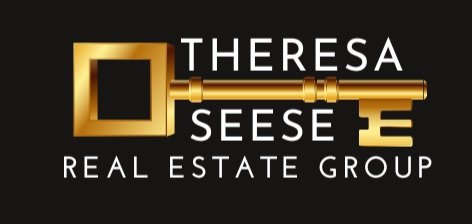What Is an FHA Loan?
Federal Housing Authority loans are mortgage agreements that are insured by the U.S. government. Though the loan itself can be made by any lender willing to front the money to your buyer, the FHA is responsible for insuring the loan. Buyers will pay a percentage of the loan amount up front as an insurance premium as well as monthly insurance payments to the federal government when they pay their bills.
In turn, the government guarantees the bank that the loan will be paid in full. This system allows many buyers who don't have a 20 percent down payment saved up to enter the home market and buy a home. Otherwise, banks might not be willing to lend first-time or lower income buyers the money they need to own a home.
When selling your home, it's not really your concern whether or not the buyer can make the mortgage payments required. That's really the bank or lender's issue. As long as they have approved the loan, you will be paid for your house in full by the lender at closing. That said, subsidized buyers also need to meet additional requirements to satisfy FHA rules, and some of these depend on the condition and price of your home.
How does an FHA loan affect the seller?
FHA loans (also known as Fannie Mae or Freddie Mac loans) require careful scrutiny of your property before final approval for your buyer. There are several factors that could end up making your sale fall through if your property doesn't align with FHA requirements. The property being purchased with an FHA loan must meet all of the minimum property requirements established by HUD (the federal department that oversees this program). But aside from that, FHA loans don’t affect sellers very much. It’s just another form of financing.
These loans tend to have a bad reputation among some sellers and listing agents. I’ve found that this reluctance often comes from misconceptions about how the program works. A home buyer using an FHA loan can be just as strong as one who is using a conventional or VA loan to buy a house.
From a seller perspective, the most important thing is to evaluate each offer in terms of its overall strength and merits. Depending on the situation, the best offer might come from an FHA borrower, or one using a conventional loan.
1. If your Appraisal Is Lower Than the Sale Price
An FHA buyer usually has a low down payment — the minimum is 3.5 percent of the negotiated price. Unfortunately, if your home appraises for less than the selling price, it could put the buyer in a position to borrow more than the government thinks the home is worth — and that won't be approved. That means in order to sell, you'll either have to get your buyer to boost their down payment, or you'll have to lower your price. Even worse, that appraisal will be held on file by the FHA for 90 days, so you're stuck with it for any future FHA buyers that season.
Along with the house appraising the property has to be safe and structurally sound. If the appraiser flags any repairs you'll need to repair the problem or back out of the deal.
2. Does HUD require both a home inspection and appraisal?
The Federal Housing Administration requires a home appraisal to be completed when an FHA loan is being used. But they do not require an inspection. Appraisals and inspections are two different things. An appraiser is mostly concerned with determining the market value of a particular house, while the inspector focuses on evaluating the home’s overall condition.
FHA home appraisals are somewhat unique, in the sense that the appraiser wears “two hats.” He or she must determine the current market value of the property, in addition to making sure that the home meets the minimum property requirements mentioned above.
3. Are FHA appraisals / inspections strict or hard to pass?
Some sellers (and real estate listing agents) believe that FHA home appraisals are overly strict or difficult to pass. This might be true for older homes with a lot of structural and/or safety issues.
But a property that’s in decent condition and is generally livable probably won’t raise any red flags when it comes to the FHA loan appraisal. Here’s an overview of what the appraiser looks at
4. Do these loans create problems or disadvantages for sellers?
There is a widespread misconception that FHA loans somehow put a seller at a disadvantage, or that this type of mortgage is “bad” for sellers in general. For the most part, these misconceptions stem from the appraisal requirements mentioned above.
An FHA buyer is only required to have a down payment of 3.5% and may not have as strong of a credit score needed for a conventional buyer. However FHA loans have a closing rate similar to that of conventional mortgages.
A home that is generally in good condition and presents no hazards to the occupant should clear the FHA appraisal / inspection process with few issues.
5. Should I accept an offer from an FHA borrower?
Sellers who are serious about selling their home will evaluate all offers that come in, including those that are associated with an FHA loan.
From a mortgage perspective, it’s more important to ensure that the buyer has been pre-approved by a lender, rather than fussing over the type of loan being used. If a buyer makes a strong offer and has a pre-approval letter, it’s an offer worth considering. This is true regardless of what type of mortgage loan is being used.
6. Can the home seller refuse or turn down such an offer?
As a seller, you have the right to accept the offer that you think is most advantageous for you. The Fair Housing Act prevents sellers and landlords from discriminating based on race, color, religion, etc. But there’s nothing that prevents you from choosing one buyer over another based on the perceived strength of their financing. It’s a business transaction after all.
7. Why the buyer is asking for the seller to pay their closing costs?
HUD allows sellers to contribute money toward the buyer’s closing costs. Whether or not you choose to do that is up to you. Those details are typically determined during the negotiating stage and written into the real estate purchase agreement.
Generally speaking, HUD allows sellers to contribute up to 6% of the sales price toward the Borrower’s origination fees, other closing costs and discount points.” All of this is outlined in HUD Handbook 4000.1, also known as the Single Family Housing Policy Handbook. For an FHA buyer he/she may need help with the closing costs, its typical for an FHA buyer to ask for a closing cost credit.
These are some of the most common questions sellers have regarding FHA loans. If you have a question that is not included above, feel free to contact me.

